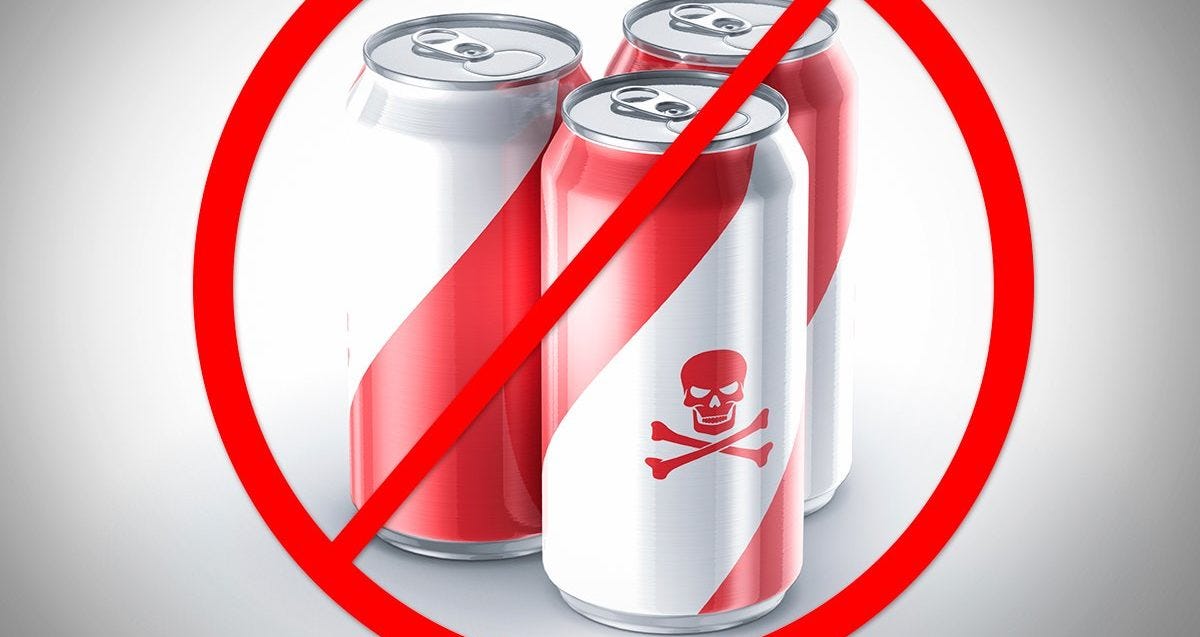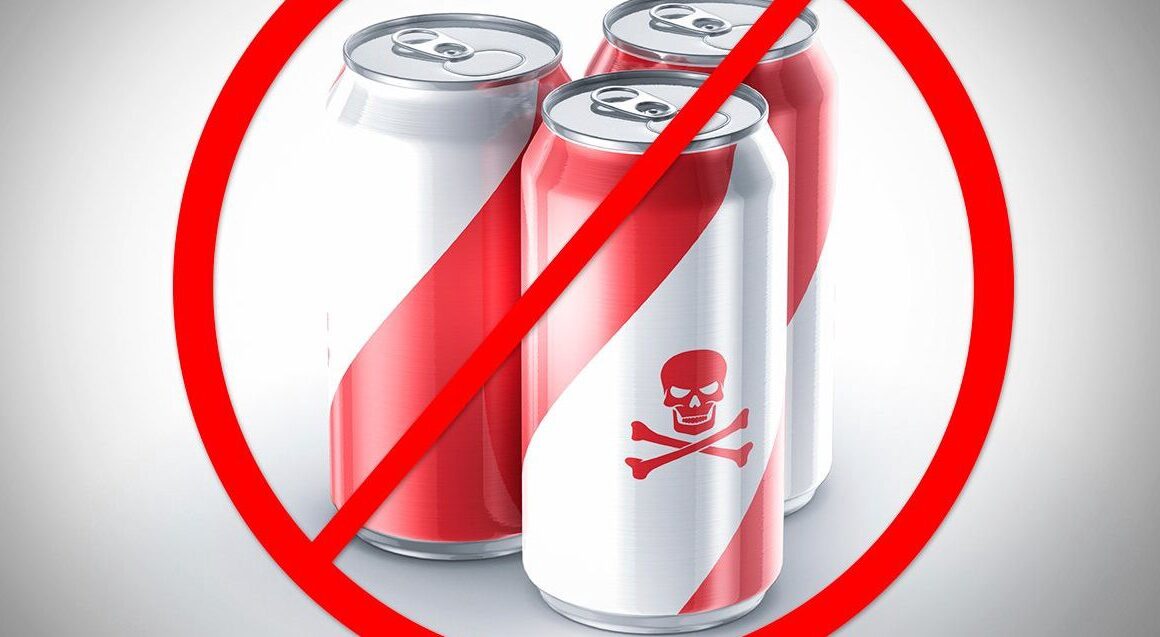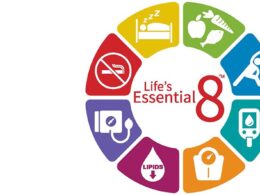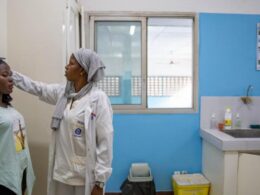Health Policy Watch
Kerry Cullinan
08/09/2022
Executive Summary by:
Joaquim Cardoso MSc.
Health Transformation Journal
September 9, 2022
What is the problem?
- “Every year, 17 million people under the age of 70 die of non-communicable diseases, mostly in low and middle-income countries,” …
- Financing for NCDs has stagnated at around 2% of the development assistance for health for two decades.
What is the opportunity:
- “Nearly seven million lives could be saved by 2030 if low and lower middle-income countries invest an additional $1 per person per year on cost-effective interventions, like graphic warnings on cigarette packaging, food labelling and bicycle lanes,”
What is a potential strategy?
- If all countries significantly raise taxes on tobacco, alcohol and sugary beverages, this could prevent 50 million premature deaths over the next 50 years, …
- “Plus, the taxes would raise more than $20 trillion in revenue to support public health programmes, helping to save even more lives,”
What is a potential strategy from a Health Systems Perspective?
- … “the proper way to finance NCD action is in general through health system reform more broadly, as opposed to very focused disease control programme approaches, such as we have seen for some infectious diseases.”
- “The big challenge is actually to build a broader, more equitable and efficient health system and integrate NCDs into the system.
- The path forward is the progressive realisation of universal health coverage.”
ORIGINAL PUBLICATION (full version)

If all countries significantly raise taxes on tobacco, alcohol and sugary beverages, this could prevent 50 million premature deaths over the next 50 years, …
… according to Michael Bloomberg, World Health Organization (WHO) Global Ambassador for Noncommunicable Diseases (NCDs) and Injuries.
“Plus, the taxes would raise more than $20 trillion in revenue to support public health programmes, helping to save even more lives,” Bloomberg told a virtual event convened to make a global appeal for more investment in NCDs.
If all countries significantly raise taxes on tobacco, alcohol and sugary beverages, this could prevent 50 million premature deaths over the next 50 years,
… Plus, the taxes would raise more than $20 trillion in revenue to support public health programmes, helping to save even more lives,”
“Every year, 17 million people under the age of 70 die of non-communicable diseases, mostly in low and middle-income countries,” …
… Dr Tedros Adhanom Ghebreyesus told the event, co-hosted by WHO, the NCD Alliance and the World Diabetes Foundation.
“Nearly seven million lives could be saved by 2030 if low and lower middle-income countries invest an additional $1 per person per year on cost-effective interventions, like graphic warnings on cigarette packaging, food labelling and bicycle lanes,” said Tedros.
“Every year, 17 million people under the age of 70 die of non-communicable diseases, mostly in low and middle-income countries,” …
“Nearly seven million lives could be saved by 2030 if low and lower middle-income countries invest an additional $1 per person per year on cost-effective interventions
Katie Dain, CEO of the NCD Alliance, decried the fact that “a multitude of political commitments have yet to really translate into adequate [financial] commitments”.
“NCDs will cause more suffering in lives lost this decade than any other health issue.
They wi’ll drain the global economy and impede human capital and undermine any effort to ensure the world is better prepared for future pandemics after COVID-19,” said Dain.
Financing for NCDs has stagnated at around 2% of the development assistance for health for two decades.
Financing for NCDs has stagnated at around 2% of the development assistance for health for two decades.

Health System Reform
Paul Fife from the Norwegian Agency for Development Cooperation stressed that “the proper way to finance NCD action is in general through health system reform more broadly, as opposed to very focused disease control programme approaches, such as we have seen for some infectious diseases.”
… “the proper way to finance NCD action is in general through health system reform more broadly, …
… as opposed to very focused disease control programme approaches, such as we have seen for some infectious diseases.”
Fife added that “we need to be careful to not give the impression that donors and donor financing are the most instrumental in driving or not driving investments in NCDs”.
“For all but the poorest countries and countries in conflict or humanitarian crises, the investments made by governments, insurance agencies, private companies — and the degree to which they are universal, meaning equitable — are far more important than donor aid,” Fife stressed.

Preventing NCDs key to achieving universal health coverage
“The big challenge is actually to build a broader, more equitable and efficient health system and integrate NCDs into the system.
The path forward is the progressive realisation of universal health coverage.”
“The big challenge is actually to build a broader, more equitable and efficient health system and integrate NCDs into the system.
The path forward is the progressive realisation of universal health coverage.”
Tanzania
Dr Omary Ubuguyu from Tanzania’s health ministry said that many of his citizens had to pay for their own NCD treatment as only 15% of the population had health insurance. “So 85% have to pay out of their pockets for health care services and this makes them very vulnerable,” said Ubuguyu.
“At the moment, what we are paying for the dialysis, for example, is almost $400 per week, So we have seen a lot of people selling their assets, only to find after one year that they can’t afford to continue with this was a treatment and then dying,” he said, adding that his country was introducing a mandatory health insurance scheme for all — although there were significant financial challenges.
“Integration of NCDs with other services, notably HIV and tuberculosis, is also on our agenda,” he added.
Uruguay
Uruguay has implemented a number of policies to address NCDs — including provisions to regulate tobacco and unhealthy food, according to health ministry official Luis Galicia.
Citizens have universal health coverage with a “payment by performance system”, where suppliers are reimbursed if patients comply with targets linked to cancer, hypertension, diabetes, heart and cerebral vascular indicators, said Galicia.
In Uruguay, citizens have universal health coverage with a “payment by performance system”, where suppliers are reimbursed if patients comply with targets linked to cancer, hypertension, diabetes, heart and cerebral vascular indicators, said Galicia.
“We have allocated a part of the taxes on alcohol and sugary beverages to the prevention and control of NCDs,” he added.

Funding targets
Bente Mikkelsen, WHO director of NCDs, said that it is “a huge disappointment that many, many countries don’t realise the epidemiological shift that has happened from HIV, malaria, TB, to actually looking at that seven out of 10 deaths in the world is now linked to NCD”.
…it is “a huge disappointment that many, many countries don’t realise the epidemiological shift that has happened from HIV, malaria, TB, …
… to actually looking at that seven out of 10 deaths in the world is now linked to NCD”.
Earlier in the meeting, South African HIV activist and academic Dr Vuyiseka Dubula, had called on people to put pressure on African countries to ensure that they spent more on health.
Mikkelsen said that the NCD sector should set a global target for NCD expenditure as the HIV sector had.
“I think we need a target for investment in NCDs, and we need to target for also including NCD into UHC. Part of that should be measures for domestic funding, which can very well be also linked to the health taxation,” said Mikkelsen.
However, she also stressed that the demand for increased investment in NCDs had to come from WHO member countries.
Despite a raft of global resolutions, policy options and implementation tools, a global roadmap “what we totally lack is the demand”.

Demand creation
“There is no demand to be seen when the proposal comes from a country that doesn’t include NCD. How can that be? So, even before the data, we are about demand creation.”
Bloomberg Philanthropies’ Dr Kelly Henning warned that progress against NCDs was being hampered by “powerful stakeholders promoting and selling harmful products”.
… progress against NCDs was being hampered by “powerful stakeholders promoting and selling harmful products”.
“It takes resolve at the highest levels of leadership to push back against these interests and requires effective public education so that the population can support and participate in the change that’s needed,” said Henning.
“It takes resolve at the highest levels of leadership to push back against these interests and requires effective public education so that the population can support and participate in the change that’s needed,” …
In 2018, Bloomberg convened a task force on fiscal policy for health, which concluded that …
… raising health taxes on tobacco, alcohol and sweetened beverages, “is highly underutilised and would save millions of lives and bring in much needed government revenue”, said Henning.
“After reviewing the evidence, the task force found that tobacco taxes can do more to reduce premature mortality than any other single health policy.
Unfortunately, since the taskforce report came out, we haven’t really made all that much progress,” said Henning.
“And why is that? The task force concluded that implementing health taxes was a measure of government resolve because industry’s pushback against tax increases with false and misleading standards, and oftentimes, influences them.”
In 2018, Bloomberg convened a task force on fiscal policy for health, which concluded that …
… raising health taxes on tobacco, alcohol and sweetened beverages, “is highly underutilised and would save millions of lives and bring in much needed government revenue”, …
The NCD Alliance is running a week-long awareness campaign about the need to invest in NCDs.
Only 14 countries are on track to meet the WHO’s nine voluntary global targets for the prevention and control of NCDs, due to be assessed at the fourth High-level Meeting of the United Nations General Assembly (HLM4) in 2025.
Originally published at https://healthpolicy-watch.news on September 8, 2022.
Names mentioned:
Michael Bloomberg, World Health Organization (WHO) Global Ambassador for Noncommunicable Diseases (NCDs) and Injuries.
Dr Tedros Adhanom Ghebreyesus, WHO,
the NCD Alliance and
the World Diabetes Foundation.
Katie Dain, CEO of the NCD Alliance,
Paul Fife from the Norwegian Agency for Development Cooperation
Dr Omary Ubuguyu from Tanzania’s health ministry
South African HIV activist and academic Dr Vuyiseka Dubula
Bloomberg Philanthropies’ Dr Kelly Henning












